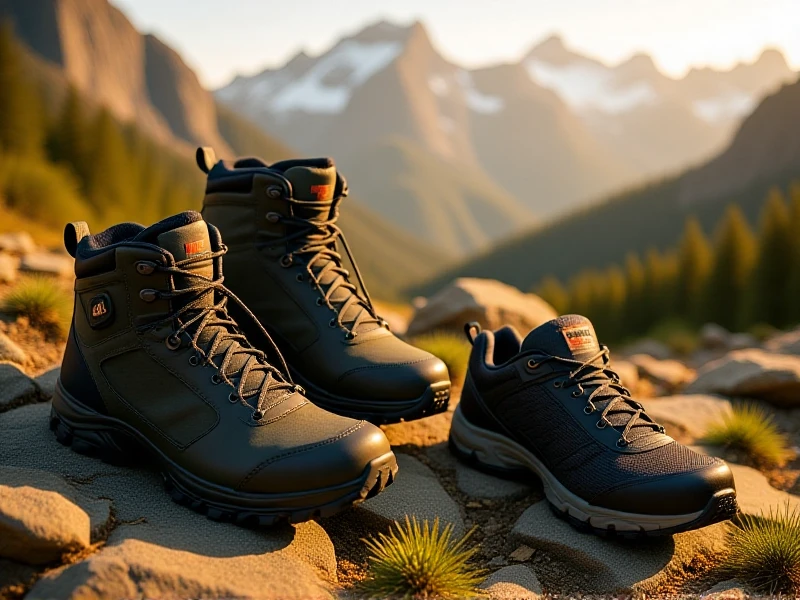
Choosing the Ultimate Hiking Shoes: Your Footwear Foundation for the Trail
Hitting the trails? Your feet deserve more than just any old sneakers. Hiking shoes are the unsung heroes of outdoor adventures, designed specifically to conquer uneven terrain, protect your feet, and provide the comfort needed for miles of exploration. Choosing the right pair is crucial, whether you're tackling a gentle nature walk or preparing for steep, rocky ascents.
While heavy backpacking boots still have their place for multi-day trips with significant weight, modern hiking shoes offer incredible support and traction in a lighter, more agile package. They're often the perfect choice for day hiking, fastpacking, and tackling established trails.
What Makes Hiking Shoes Essential?
Unlike running shoes, hiking shoes are built to handle the unpredictable outdoors. Key features include:
- Rugged Outsoles: Deep, multi-directional lugs (like Vibram®) provide critical grip on dirt, mud, loose gravel, and wet rocks, preventing slips.
- Sturdy Uppers: Often made from abrasion-resistant synthetic mesh combined with leather or suede panels, they shield your feet from rocks, roots, and brush while offering breathability.
- Support & Stability: A firmer midsole and shank (a stiff insert between the sole and footbed) deliver torsional rigidity and arch support, protecting ankles and preventing fatigue on uneven ground.
- Toe Protection: Reinforced toe caps guard against stubbing on obstacles.
- Water Resistance: Many feature waterproof membranes (e.g., Gore-Tex®) to keep feet dry crossing streams or hiking in damp conditions, though non-waterproof options excel in hot, dry climates for enhanced breathability.
- Secure Fit: Lacing systems ensure a snug, locked-in feel, preventing foot movement and blisters.
Finding Your Perfect Fit:
Getting the fit right is paramount. Always try on hiking shoes with the socks you intend to hike in and in the late afternoon when feet are slightly swollen. Ensure ample room for toes to wiggle without your heel lifting. Walk rigorously on an incline/decline simulator if available. Consider:
- Terrain: Rugged trails demand more aggressive tread and ankle support. Smoother paths allow for lighter, more flexible options.
- Weather: Prioritize waterproofing for wet climates or stream crossings. Opt for breathable mesh in consistently dry, hot environments.
- Weight: Lighter shoes reduce fatigue but often sacrifice some durability or ankle support.
Top brands like Merrell, Salomon, Keen, Oboz, and Vasque consistently produce high-performing hiking shoes. Look for durability, tested traction patterns, and wide compatibility.
Don't compromise your adventure before you even start. Investing in high-quality hiking shoes tailored to your needs ensures comfort, safety, and confidence, transforming every step on the trail into pure enjoyment. Visit a reputable outdoor retailer to find your ideal pair and step up your hiking experience. Your feet will thank you miles down the path!